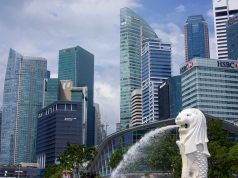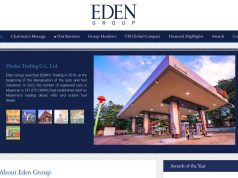PwC Global NextGen Survey 2022 – China Report: 94% of 2nd Generation are Leading Family Businesses & 31% Have Family Office, 60% of Hong Kong Business Have Family Office
18th November 2022 – Hong Kong
PwC has released a report PwC Global NextGen Survey 2022 – China Report, providing key insights into China family businesses, family offices and the next generation leading the family businesses in China. 94% of Mainland China 2nd generation are currently leading the business, compared to 61% in Hong Kong & 51% globally. 31% of China business have a family office and 60% of Hong Kong business have a family office (Global: 42%). The top 5 Mainland China next generation education background are Business/Commerce (60%), Maths/Finance (25%), Science (13%), Arts (13%) and IT/Digital (6%). Mainland China next generation have strong networks with NextGen from other family businesses to support their career 56% vs 44% (Global) and males are more likely than females to be expected to run the family business 52% vs 39% (Global). China Mainland next generation are less involved in senior leadership role, board role, governance role, family council role, shareholder, beneficiary (vs Global) but China Mainland next generation are more entrepreneurial, both outside family business, setting up new venture, or leading project in family businesses (vs Global). The top 5 priorities in the next 2 years for Mainland China family businesses are Business growth (72%), New technologies (52%), New sectors or markets (46%), Talent management (44%) and Asset allocation & investments (41%). See key data & summary below | View Report here
“ 94% of Mainland China 2nd generation are currently leading the business, compared to 61% in Hong Kong & 51% globally.
” 31% of China business have a family office and 60% of Hong Kong business have a family office “
PwC’s Global NextGen Survey 2022 is an international market survey among next- generation members in family businesses. The goal of the survey is to get an understanding of what NextGens are thinking on the key issues of the day, what role they are playing and what roles they think they should play. The survey was conducted online in collaboration with The Family Business Network (FBN). There were 1,036 interviews in 68 territories, between 8 October and 12 December 2021. The China report focuses on the perspectives of 81 NextGen respondents in China. For the purposes of this report, ‘China’ refers to the People’s Republic of China, including Hong Kong SAR survey respondents.
PwC Global NextGen Survey 2022 – China Report:

PwC Global NextGen Survey 2022 – China Report:
Key Findings:
- Mainland China 2nd generation are currently leading the business (94%), compared to Hong Kong (61%), Global (51%)
- Only 6% of Mainland China 3rd generation are leading the business, compared to Hong Kong (30%), Global (51%)
- 31% of China business have a family office (Global: 42%)
- 60% of Hong Kong business have a family office (Global: 42%)
- Top Priorities in the next 2 Years for Mainland China family businesses: Business growth (72%), New technologies (52%), New sectors or markets (46%), Talent management (44%), Asset allocation & investments (41%)
“ The top 5 Mainland China next generation education background are Business/Commerce (60%), Maths/Finance (25%), Science (13%), Arts (13%) and IT/Digital (6%) “
Mainland China Next Generation Insights, Network, Education, Learning
- Clear idea about my personal ambitions for a future role in the family business – 79% vs 74% (Global)
- Strong networks with NextGen from other family businesses to support me in my career – 56% vs 44% (Global)
- NextGen males are more likely than NextGen females to be expected to run our business – 52% vs 39% (Global)
- Mainland China Next Generation Find These Succession Issues Easy – Discover own strengths and passions, Business essentials (i.e. accounting, finance, operations), Family Business / Office
- Top 5 Mainland China Next Generation education background: Business/Commerce (60%), Maths/Finance (25%), Science (13%), Arts (13%), IT/Digital (6%)
- Mainland China Next Generation on what they need to learn: Finance/Investments (59%), Leadership development / Soft skills (49%), Business model innovation (40%), Human resources / Talent management (28%), Digitisation/AI (23%)
Mainland China Next Generation
- China Mainland next generation are less involved in senior leadership role, board role, governance role, family council role, shareholder, beneficiary (vs Global)
- China Mainland next generation are more entrepreneurial, both outside family business, setting up new venture, or leading project in family businesses. (Vs Global)
- China Mainland next generation are more ready to take on senior leadership role or entrepreneur outside business (supported by family) compared to global
- Top 3 priorities for Mainland China Next Generation: Business growth (58%), New sectors or markets (23%), Asset allocation & investments (22%)
1) China Family Businesses & Family Office
Leaders in China Family Businesses (By Generation)
China private sector and family business has a short history, with economic development and opening up only in the next 1970s (50 years ago). Hurun China 500 Companies: Average lifespan is 25 years (Global: 28 years).
- Mainland China 2nd generation are currently leading the business (94%), compared to Hong Kong (61%), Global (51%)
- Only 6% of Mainland China 3rd generation are leading the business, compared to Hong Kong (30%), Global (51%)
- No 4th generation and 5th generation Mainland China leaders yet in family business
- Hong Kong and Global family businesses have similar percentage of the generation leading the family business.
2nd Generation Leading Family Business
- Mainland China – 94%
- Hong Kong – 61%
- Global – 51%
3rd Generation Leading Family Business
- Mainland China – 6%
- Hong Kong – 30%
- Global – 27%
4th Generation Leading Family Business
- Mainland China – NA
- Hong Kong -7%
- Global – 10%
5th Generation Leading Family Business
- Mainland China – NA
- Hong Kong -2%
- Global – 6%
China Business have a Family Office (Hong Kong, Global)
- Yes, Main business – 17% (30%, 17%)
- Yes, in addition to Family Business – 14% (30%, 25%)
- No – 60% (33%, 52%)
- Don’t know – 9% (7%, 6%)
31% of China business have a family office (Global: 42%) and 60% of Hong Kong business have a family office (Global: 42%)
Role in Mainland China Family Business, Family Office (Hong Kong, Global)
- Senior leadership role (management, executive director) – 46% (54%, 53%)
- Shareholder/beneficiary – 37% (43%, 42%)
- Entrepreneur outside business (supported by the family) – 29% (20%, 12%)
- Setup new venture / lead project in business – 20% (9%, 13%)
- Governance / Board role – 17% (4%, 30%)
- Employee/intern – 11% (22%, 18%)
- Other – NA (NA, 2%)
- Not engaged yet – 9% (13%, 12%)
China Mainland next generation are less involved in senior leadership role, board role, governance role, family council role, shareholder, beneficiary. But China Mainland next generation are more entrepreneurial, both outside family business, setting up new venture, or leading project in family businesses.
Target Role in Mainland China Family Business, Family Office in 5 Years (Hong Kong, Global)
- Senior leadership role (management, executive director) – 69% (61%, 51%)
- Shareholder/beneficiary – 46% (39%, 43%)
- Entrepreneur outside business (supported by the family) – 40% (24%, 25%)
- Setup new venture / lead project in business – 31% (28%, 25%)
- Governance / Board role – 29% (37%, 43%)
- Employee/intern – 11% (13%, 8%)
- Other – 3 (NA, 2%)
- Not engaged yet – NA (9%, 7%)
In the next 5 years, Mainland China next generation would like to take on senior leadership roles or setup new ventures, 15% higher than global. Mainland China next generation are less interested to take on governance role.
Mainland China (Hong Kong, Global)
- Senior leadership role (management, executive director) – 69% (61%, 51%)
- Entrepreneur outside business (supported by the family) – 40% (24%, 25%)
2) Mainland China Next Generation Insights, Network, Education, Learning
Mainland China Next Generation who agree with the following statements (China, Global)
- Opportunity to learn and grow within the family business – 79% vs 79%
- Clear idea about my personal ambitions for a future role in the family business – 79% vs 74%
- Clear on the steps I need to take to prepare for my future role in the family business – 73% vs 66%
- Clear on what the current generation’s goals are for my career path in the family business – 72% vs 60%
- Family business has adopted the flexible working practices that will be required in the post-COVID-19 world – 62% vs 67%
- Strong networks with NextGen from other family businesses to support me in my career – 56% vs 44%
- NextGen males are more likely than NextGen females to be expected to run our business – 52% vs 39%
Mainland China Next Generation Find These Succession Issues Easy (China, Global)
- Discover own strengths and passions – 81% vs 68%
- Business essentials (i.e. accounting, finance, operations) – 75% vs 75%
- Family Business / Office – 74% vs 73%
- Proving yourself as a new leader or board member – 60% vs 52%
- Ability or readiness of the current generation to retire – 52% vs 39%
Mainland China Next Generation education background (China, Global):
- Business/Commerce – 60% vs 63%
- Maths/Finance – 25% vs 22%
- Science – 13% vs 15%
- Arts – 13% vs 6%
- IT/Digital – 6% vs 7%
- Law – 6% vs 6%
- Education – 3% vs 2%
- Others – 5% vs 2%
Mainland China Next Generation on what they need to learn (China, Global)
- Finance/Investments – 59% vs 53%
- Leadership development / Soft skills – 49% vs 48%
- Business model innovation – 40% vs 41%
- Human resources / Talent management – 28% vs 28%
- Digitisation/AI – 23% vs 30%
- Sustainability/ESG – 23% vs 25%
- Tax and accounting – 22% vs 29%
- M&A – 21% vs 25%
- Internationalisation/Globalisation – 17% vs 23%
- PR/Communication – 12% vs 17%
- Philanthropy – 12% vs 10%
3) Mainland China Next Generation on Family Businesses
Impact of COVID-19 Pandemic China Mainland (Global)
- Brought forward or increased your involvement & engagement – 33% (43%)
- Resulted in stronger communication between you & current generation of leadership – 30% (36%)
- Postponed or decreased your involvement & engagement – 26% (15%)
- Revealed a need for upskilling or additional education – 16% (28%)
- Accelerated/brought forward succession – 14% (22%)
- Meant that you have been asked to lead on specific projects – 12% (14%)
- Another significant change not mentioned here – 1% (4%)
- None of the above – 21% (15%)
With COVID-10 Pandemic China Mainland next generation are less active in family business and family office, compared to global next generation.
PwC: The current generation took control navigating the pandemic. While having veterans at the helm allowed the business survival strategy to be shaped by experience, the limited involvement of the NextGens likely resulted in missed opportunities.
PwC on Sustaining Family Legacy through 3 Dimensions:
- Business (the engine): Grow 10% every 2 – 3 years through organic growth, diversification or impact investing to serve the family interests. Develop the capabilities to drive digital transformation and capture opportunities in environmental, social and governance (ESG).
- Family: A united family, supported by a strong constitution and governance, supports growth. Establish a generational contract to bolster succession planning and sustainable transformation.
- Wealth: Adequate wealth reserves ensure that the family maintains or enhances its position. Family Offices can strengthen business prospects and foster asset diversification.
Top Priorities in the next 2 Years for Mainland China family businesses (Global)
- Business growth – 72% (65%)
- New technologies – 52% (44%)
- New sectors or markets – 46% (47%)
- Talent management – 44% (48%)
- Asset allocation & investments – 41% (29%)
- Right products & services for customers – 35% (39%)
- Innovation and R&D – 35% (34%)
- Upskilling digital capabilities of our workforce – 32% (39%)
- Improving the working conditions/practices of our employees – 27% (31%)
- Investments for sustainability and impact – 21% (31%)
- Reduce the organisation’s environmental impact – 14% (24%)
- Support local community via increased investment or business activity – 10% (19%)
- Increase focus on privacy & cybersecurity – 7% (15%)
- Other – 1% (1%)
- None of the above – 1% (1%)
Next Generation Involvement in the next 2 Years for Mainland China family businesses (Global)
- Business growth – 63% (59%)
- Right products & services for customers – 48% (50%)
- Asset allocation & investments – 42% (33%)
- New sectors or markets – 41% (43%)
- Talent management – 38% (37%)
- Improving the working conditions/practices of our employees – 33% (42%)
- New technologies – 32% (44%)
- Innovation and R&D – 27% (28%)
- Support local community via increased investment or business activity – 26% (28%)
- Investments for sustainability and impact – 23% (28%)
- Upskilling digital capabilities of our workforce – 21% (36%)
- Increase focus on privacy & cybersecurity – 19% (21%)
- Reduce the organisation’s environmental impact – 17% (25%)
Mainland China Next Generation preferred involvement in the future (Global)
- Upskilling digital capabilities of our workforce – 47% (36%)
- New technologies – 47% (36%)
- Reduce the organisation’s environmental impact – 46% (40%)
- Innovation and R&D – 41% (40%)
- New sectors or markets – 40% (38%)
- Investments for sustainability and impact – 40% (44%)
- Improving the working conditions/practices of our employees – 37% (33%)
- Talent management – 37% (38%)
- Business growth – 35% (30%)
- Support local community via increased investment or business activity – 35% (39%)
- Asset allocation & investments – 33% (41%)
- Right products & services for customers – 32% (30%)
- Increase focus on privacy & cybersecurity – 28% (32%)
Top 3 areas Mainland China Next Generation can add value the most, (Global)
- Business growth – 35% vs 31%
- Asset allocation & investments – 16% vs 11%
- New sectors or markets – 12% vs 13%
Top 3 priorities for Mainland China Next Generation, (Global)
- Business growth – 58% vs 44%
- New sectors or markets – 23% vs 25%
- Asset allocation & investments – 22% vs 13%
Mainland China Next Generation who agree with the following statements
- Clear roles & responsibilities for those involved in the business – 68% vs 69%
- Family has a clear set of family values – 68% vs 74%
- Actively contribute to the community – 65% vs 76%
- Moving too slowly on sustainability – 63% vs 60%
- Information is shared in a transparent & timely way between family member – 63% vs 63%
- Sustainability is at the heart of everything we do – 62% vs 55%
- Values of our family define clear expectations for family members – 62% vs 61%
- Clear and flat governance structure – 60% vs 62%
- Responsibility to fight climate change – 57% vs 71%
- Communication between family members on business increased (COVID-19 pandemic) – 56% vs 56%
- Current generation in charge do not fully understand the opportunities and/or risks for digital within the business – 44% vs 33%
- Developed & communicated sustainability strategy, which informs all our decisions – 44% vs 39%
- Resistance within the company to embrace change – 38% vs 39%
- Family protocols/a constitution in place – 38% vs 40%
- Company’s family values and mission are articulated in written form – 35% vs 47%
- Strong digital capabilities – 32% vs 42%
Mainland China Next Generation on Sustainability / ESG
- Opportunity for family businesses like ours to lead the way in sustainable business practices – 51% vs 64%
- Family businesses like ours are unlikely to lead but we will play our part when required – 44% v 30%
- Neither 5% vs 6%
PwC’s Global NextGen Survey 2022
PwC’s Global NextGen Survey 2022 is an international market survey among next- generation members in family businesses. The goal of the survey is to get an understanding of what NextGens are thinking on the key issues of the day, what role they are playing and what roles they think they should play. The survey was conducted online in collaboration with The Family Business Network (FBN). There were 1,036 interviews in 68 territories, between 8 October and 12 December 2021. The China report focuses on the perspectives of 81 NextGen respondents in China. For the purposes of this report, ‘China’ refers to the People’s Republic of China, including Hong Kong SAR survey respondents.
Sign Up / Register
Caproasia Users
- Manage $20 million to $3 billion of assets
- Invest $3 million to $300 million
- Advise institutions, billionaires, UHNWs & HNWs
Caproasia Platforms | 11,000 Investors & Advisors
- Caproasia.com
- Caproasia Access
- Caproasia Events
- The Financial Centre | Find Services
- Membership
- Family Office Circle
- Professional Investor Circle
- Investor Relations Network
Monthly Roundtable & Networking
Family Office Programs
The 2025 Investment Day
- March - Hong Kong
- March - Singapore
- July - Hong Kong
- July - Singapore
- Sept- Hong Kong
- Sept - Singapore
- Oct- Hong Kong
- Nov - Singapore
- Visit: The Investment Day | Register: Click here
Caproasia Summits
- The Institutional Investor Summit
- The Investment / Alternatives Summit
- The Private Wealth Summit
- The Family Office Summit
- The CEO & Entrepreneur Summit
- The Capital Markets Summit
- The ESG / Sustainable Investment Summit










































